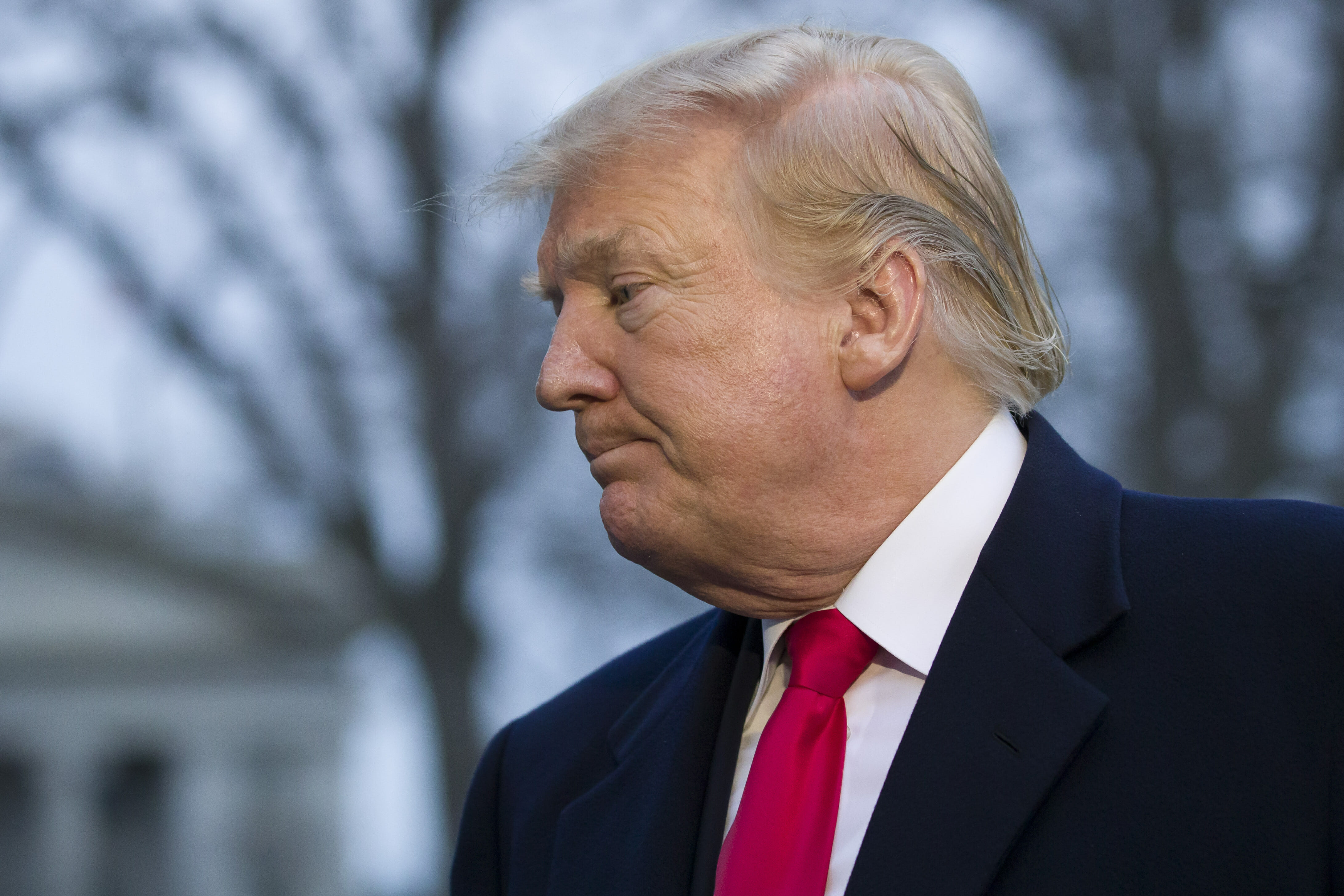
Mueller didn't say whether Trump committed obstruction
WASHINGTON (AP) — When it comes to whether President Donald Trump obstructed justice, special counsel Robert Mueller drew no conclusion at all.
That put the obstruction question in the hands of Attorney General William Barr and his deputy. They found there wasn’t enough evidence to prove Trump had committed that crime.
The Justice Department on Sunday released the main findings from Mueller’s nearly two-year Russia investigation, saying there was no evidence Trump’s campaign conspired with the Kremlin. But Mueller’s conclusion on obstruction was not nearly so clear-cut.
“While this report does not conclude that the President committed a crime, it also does not exonerate him,” Mueller said in his final report, according to a summary of the findings released by Barr. Mueller’s actual report remains confidential.
Barr made clear in his summary that Mueller did not weigh in on whether Trump obstructed justice through actions including firing FBI Director James Comey.
Instead, Barr said, Mueller laid out the evidence he found on the subject. Barr did not provide details of the evidence, but said most of it is publicly known.
“The report sets out evidence on both sides of the question and leaves unresolved what the Special Counsel views as ‘difficult issues’ of law and fact concerning whether the President’s actions and intent could be viewed as obstruction,” Barr wrote.
That left it up to Barr to decide. After consulting with other department officials, Barr said he and his deputy, Rod Rosenstein, determined the evidence “is not sufficient to establish that the president committed an obstruction of justice offense.”
Barr noted that Mueller couldn’t prove that Trump was involved in any underlying crimes related to Russian election interference. That makes it hard to make a case that Trump had the “corrupt intent” that would be needed to prove an obstruction charge, Barr said in his letter.
Barr emphasized that he made that decision without considering longstanding department guidance that a sitting president can’t be indicted.
Legal experts have been divided on that question and the Supreme Court has never ruled on the issue.
Democrats almost immediately raised questions about the report’s finding about obstruction. The chairman of the House Judiciary Committee said he intends to call Barr before the panel to answer questions about it.
“It’s as far as I know unprecedented for a special prosecutor not to make a decision one way or the other, and certainly unprecedented for an attorney general to arrogate himself that decision,” the chairman, Rep. Jerrold Nadler, D-N.Y., said. “And certainly unprecedented for an attorney general who campaigned for the role by saying presidents can hardly ever commit obstruction of justice.”
Months before Trump nominated Barr last December, Barr sent an unsolicited memo to Rosenstein — who had appointed Mueller and was overseeing his work — as well as White House lawyers, criticizing the theory of obstruction that Mueller appeared to be pursuing with regard to Trump. He called it “fatally misconceived.” Barr also discussed the memo with Trump’s personal attorneys and a lawyer representing Trump’s son-in-law, Jared Kushner, among others.
Barr’s memo drew criticism from congressional Democrats, who questioned Barr’s impartiality. But Barr defended the memo during his confirmation hearing, saying it was narrowly focused on a single theory of obstruction that media reports suggested Mueller might be considering, including investigating the president’s firing of Comey.
Some legal experts speculated that Mueller may have been trying to leave the obstruction question up to Congress, perhaps anticipating there would be hearings where more information on his findings would come out.
“Maybe what he was doing was leaving it up to the Hill to make a political determination,” said Jeffrey Jacobovitz, a Washington white-collar attorney.
Jacobovitz said that based on Barr’s summary of the obstruction issue, it appears that Mueller “was torn about whether he could prove it beyond a reasonable doubt.”
That could be especially hard since Mueller never interviewed Trump and might therefore have a hard time establishing whether he had criminal intent to obstruct the investigation. Trump refused to be questioned in person and instead answered written questions. Mueller never subpoenaed him — an action that likely would have reached the Supreme Court and ended in an uncertain outcome.
___
Associated Press writers Mary Clare Jalonick and Eric Tucker contributed to this report.
The Western Journal has not reviewed this Associated Press story prior to publication. Therefore, it may contain editorial bias or may in some other way not meet our normal editorial standards. It is provided to our readers as a service from The Western Journal.
Truth and Accuracy
We are committed to truth and accuracy in all of our journalism. Read our editorial standards.
Advertise with The Western Journal and reach millions of highly engaged readers, while supporting our work. Advertise Today.












